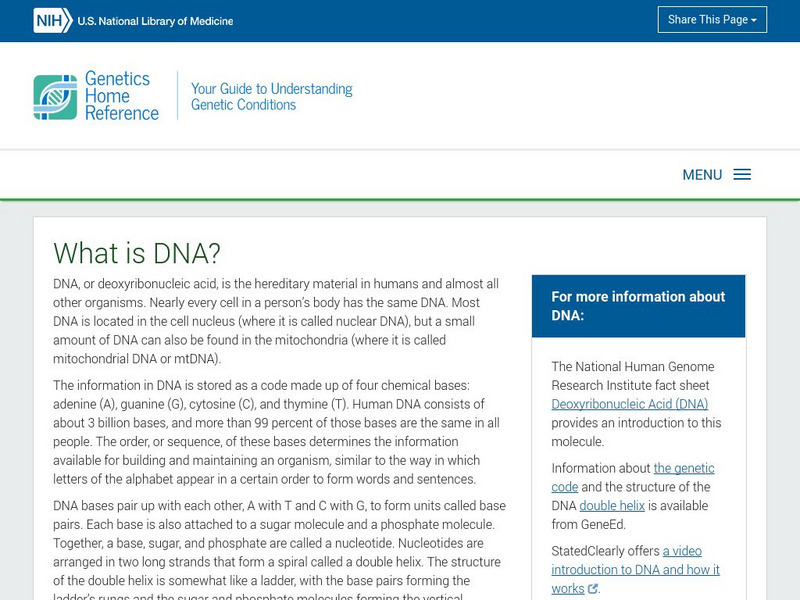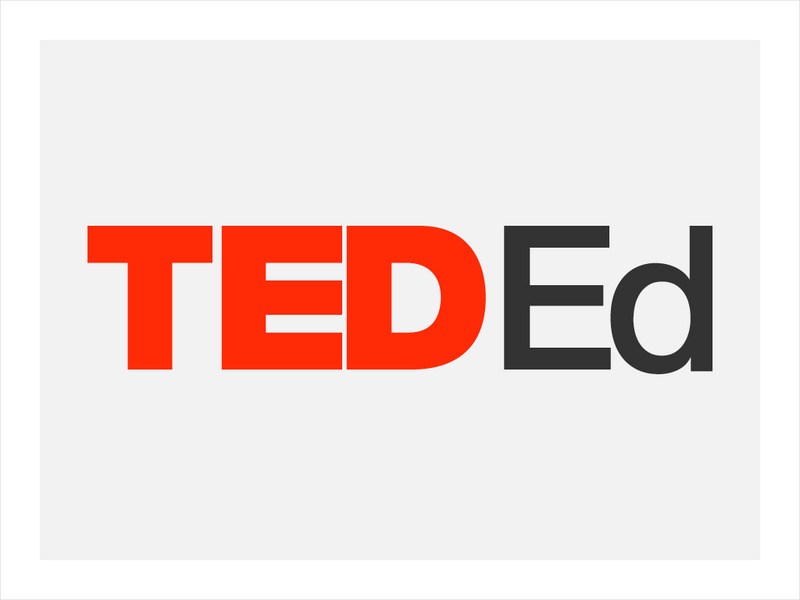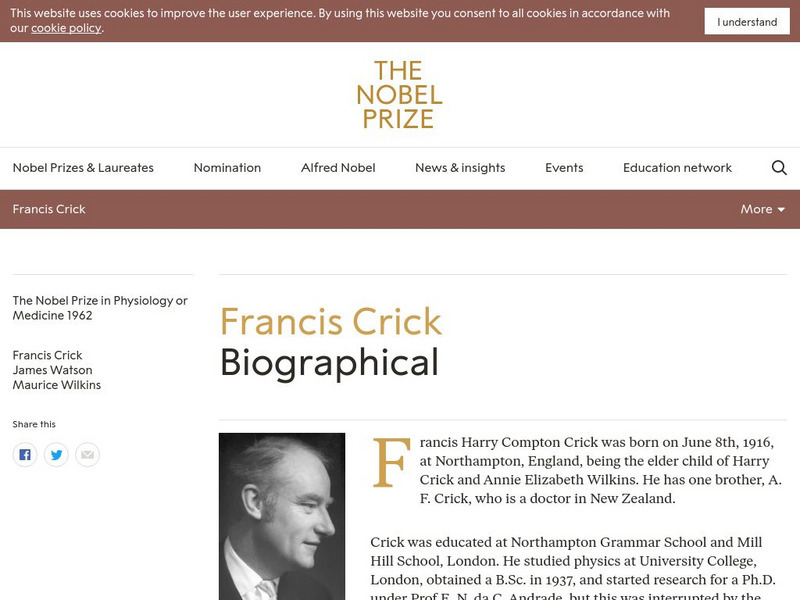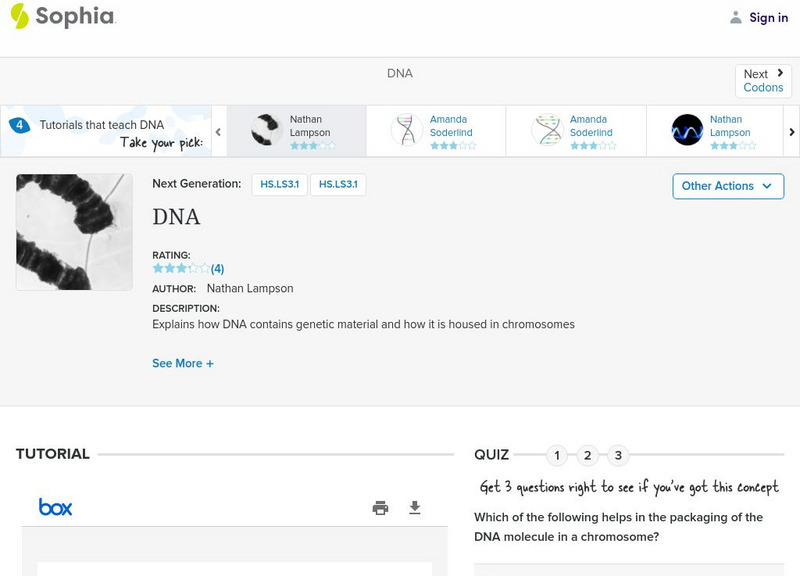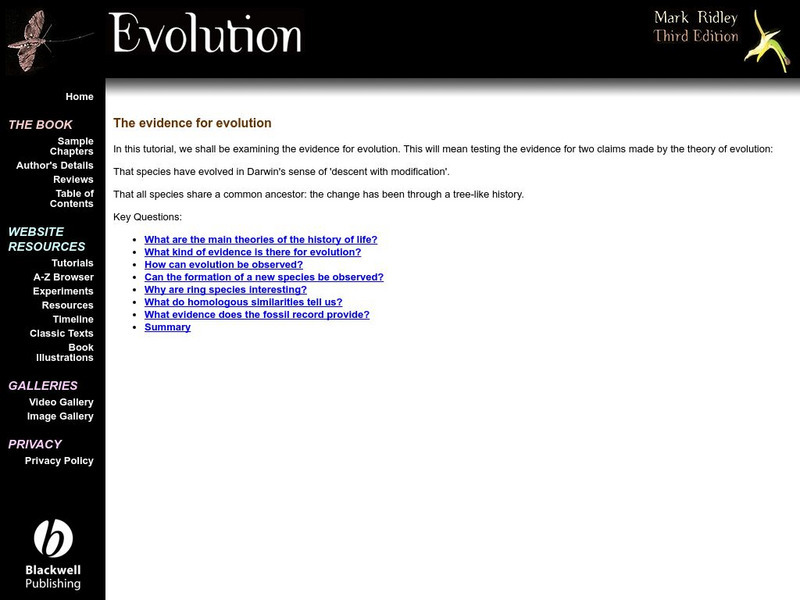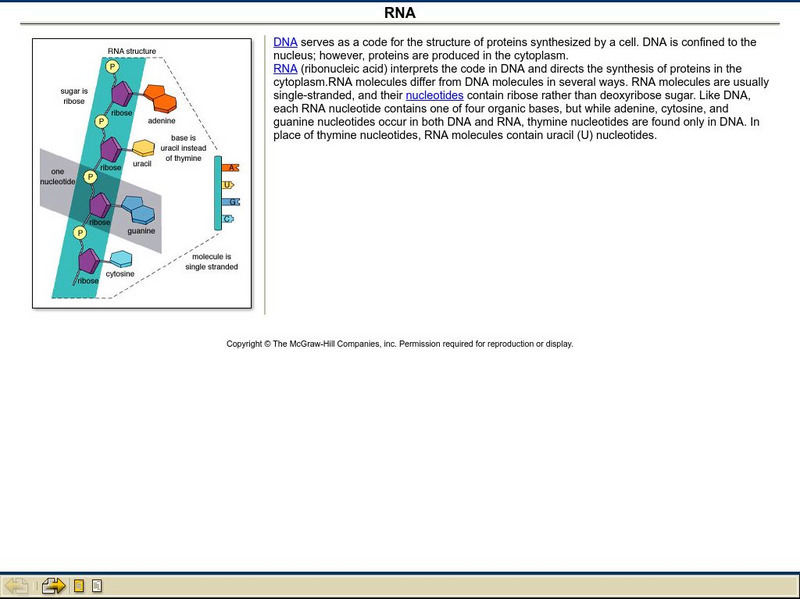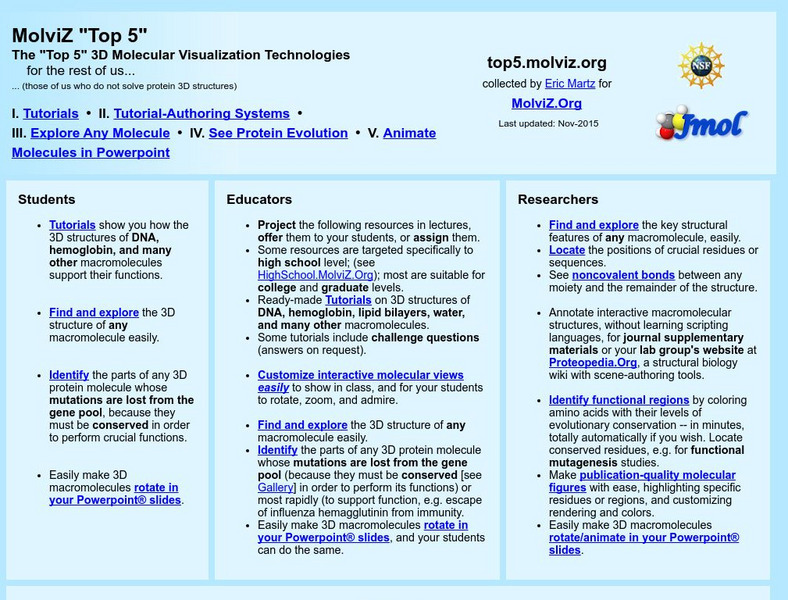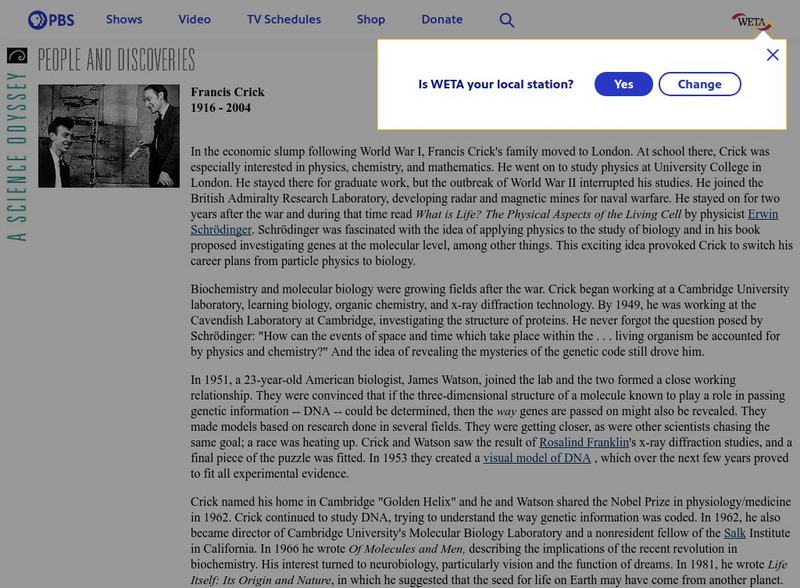The Association of the British Pharmaceutical Industry
Abpi: Cell Division and Cancer
A complete, student-led lesson on cell structure, cell division, and cancer growth. Students work their way through illustrations and animated tutorials, and answer review questions along the way. There is a self-checking quiz at the end...
National Institutes of Health
U.s. National Library of Medicine: What Is Dna?
Scientific information about the hereditary material in all living things, DNA. Also includes links to fact sheets for quick reference.
CK-12 Foundation
Ck 12: Life Science: Translation of Rna to Protein
[Free Registration/Login may be required to access all resource tools.] The mRNA, which is transcribed from the DNA in the nucleus, carries the directions for the protein-making process. mRNA tells the ribosome how to create a specific...
TED Talks
Ted: Ted Ed: Rosalind Franklin: Dna's Unsung Hero
The discovery of the structure of DNA was one of the most important scientific achievements in human history. The now-famous double helix is almost synonymous with Watson and Crick, two of the scientists who won the Nobel prize for...
CK-12 Foundation
Ck 12: Biology: Central Dogma of Molecular Biology
[Free Registration/Login may be required to access all resource tools.] Overview of the central dogma of molecular biology.
University of Arizona
The Biology Project: The Cell Cycle & Mitosis Tutorial
The Cell Biology Project at the University of Arizona provides an explanation of mitosis, DNA basics, diagrams and a practice exercise.
Nobel Media AB
The Nobel Prize: Francis Crick Biographical
Read about the co-recipient of the 1962 Nobel Prize in Medicine. This biography includes a picture of Crick as well as information on his personal life. Most focus, however, is on his scientific contributions and discoveries "concerning...
Sophia Learning
Sophia: Dna: Lesson 2
Explains how DNA contains genetic material and how it is housed in chromosomes. This lesson is 2 of 5 in the series titled "DNA."
Sophia Learning
Sophia: Dna: Lesson 1
Explains how DNA contains genetic material and how it is housed in chromosomes. This lesson is 1 of 5 in the series titled "DNA."
Sophia Learning
Sophia: Dna: Lesson 4
Explains how DNA contains genetic material and how it is housed in chromosomes. This lesson is 4 of 5 in the series titled "DNA."
Soft Schools
Soft Schools: Dna or Deoxyribonucleic Acid Part Ii Quiz
Take an interactive quiz over DNA. After completing the quiz, check your score, and then revisit any incorrect question for further review.
University of California
University of California Museum of Paleontology: Homologies
These pages are from the Understanding Evolution website for teachers. They focus on homologous structures that organisms with common ancestors share.
Other
The Evidence for Evolution
These pages are part of a site called "Evolution," that accompanies a textbook by the same name. Mark Ridley is the author, and in this section he discusses the evidence for evolution.
McGraw Hill
The Mc Graw Hill Companies, Inc.: Rna
This brief site provides a comparison of DNA and RNA along with a brief explanation of the role of RNA within the cell.
University of Massachusetts
University of Massachusetts: Rasmol & Chime
This site from the University of Massachusetts links to downloadable freeware (Rasmol and CHIME) which are required to view 3-D images common on organic chemistry tutorials.
Khan Academy
Khan Academy: Nucleus and Ribosomes
Discussion in detail of the structure and function of the nucleus and ribosomes of a cell and how they work together in the production of proteins.
PBS
Pbs/francis Crick
This short biography centers around the discovery of the structure of DNA. A link to the interactive DNA workshop is also posted at the bottom of this page.
Curated OER
Dna Photo
Article about a recent book on Rosalind Franklin and the contribution she made to the discovery and identification of "The substance of life -- the structure of DNA."
BioMan Biology
Bio Man Biology: Life Chemistry Quizzes
Two multiple-choice quizzes, one on the processes and types of biological molecules, the other on the structure and replication of DNA.
Concord Consortium
Concord Consortium: How Do Cells Make Proteins?
Learn how the code on a strand of DNA can be used to make a protein.
National Health Museum
Access Excellence: Making a Phylogenetic Tree Lesson Plan
Constructing phylogenetic trees may be a daunting task for students, but this lesson plan is a simulation of what molecular biologists must do to determine relationships. This plan is for students who have a good grasp of DNA structure...
Cells Alive
Cells Alive!
Animation studio that specializes in medical illustration lets you explore the structure and function of plant cells and animal cells, using videos and interactive graphics with clickable parts that lead to more detail.
CK-12 Foundation
Ck 12: Life Science: Rna
[Free Registration/Login may be required to access all resource tools.] DNA contains the instructions to create proteins, but it does not make proteins itself. DNA is located in the nucleus, which it never leaves, while proteins are made...
Houghton Mifflin Harcourt
Harcourt: Biographies: Rosalind Franklin
This is a fantastic biography of Rosalind Franklin. It has links to both additional information and images to help illustrate the biography.

